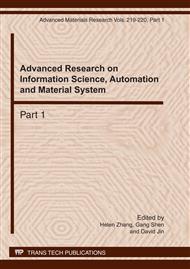p.718
p.722
p.727
p.732
p.736
p.742
p.746
p.750
p.754
Low-Carbon Selection Decision for Logistics Enterprises Based on Evolutionary Game under the Supervision of Government
Abstract:
The emission of greenhouse gases leading to global climate warming has caused widespread concern on the part of governments worldwide. As one of the main sources of carbon emissions, modern logistics occupies a unique position for energy saving. But as economic entities, logistics enterprises have no real incentive to implement low-carbon logistics operations, which needs government to stimulate logistics enterprises to implement low-carbon strategy through regulations. Constructed an Evolutionary Game Model for logistics enterprises to implement low-carbon selection decision under the supervision of the government, analyzed the effcts of different regulative parameters on the implementation of low-carbon strategy in logistics business. The results show that government's regulation and strategies play a crucial role in carrying out the low-carbon strategy. Finally, according to different evolution conditions and conclusions, it proposes appropriate supervision strategies for government to promote logistics enterprises to put the low-carbon strategy into effect.
Info:
Periodical:
Pages:
736-741
Citation:
Online since:
March 2011
Authors:
Price:
Сopyright:
© 2011 Trans Tech Publications Ltd. All Rights Reserved
Share:
Citation:


